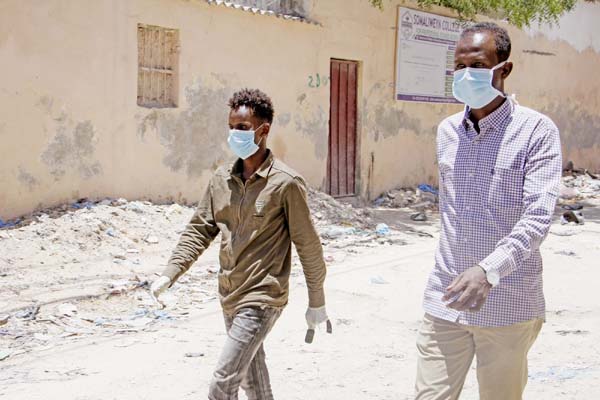
AP, Johannesburg :
Africa should “prepare for the worst” as the coronavirus begins to spread locally, the World Health Organization’s director-general said Wednesday, while South Africa became the continent’s new focus of concern as cases nearly doubled to 116 from two days before.
South Africa’s health minister, Zweli Mkhize, this week called that kind of rate “explosive” in the country with the most cases in sub-Saharan Africa. Fourteen of the latest cases were from local transmission – and six were in children under 10.
Though the pandemic is in its early days on the continent, health experts have warned that even facilities in Africa’s richest nation could be overwhelmed by the virus’ spread.
“I think Africa should wake up. My continent should wake up,” said WHO chief Tedros Adhanom Ghebreyesus, who comes from Ethiopia.
Crowded conditions in poor areas could lead to even faster transmission, experts say. Countless South Africans continue to pack into commuter trains and minivan taxis. But the annual pilgrimage of the Zion Christian Church, which attracts about 3 million people, was cancelled.
“We have low-income workers who cannot afford to self-isolate or take time off work,” said public health expert Dr. Atiya Mosam, who also worried about the large population without clean water or sanitation or vulnerable from HIV or tuberculosis.
Others asked how a person can self-quarantine in a crowded slum. The continent has several of the world’s fastest-growing cities.
Despite widespread calls for “social distancing,” a cashier at a popular pharmacy in Johannesburg confided that some customers found it rude when she suggested they swipe their payment cards themselves to limit contact. Elsewhere in the store a shopper determinedly filled a cardboard box with “anti-germ” soap, and hand sanitizer was out of stock despite calls to stop panic buying.
Also Wednesday, sub-Saharan Africa saw its second death from COVID-19, in Burkina Faso, which has one of the continent’s highest number of cases but has not imposed measures such as closing borders or banning religious services. Sudan previously reported a death.
In Kenya, police said a man accused of having the coronavirus was beaten to death. A police report obtained by The Associated Press said the man was returning home from a night out Wednesday when a group of youth approached and “took advantage of his drunkenness.”
In Ethiopia, the U.S. Embassy noted a rise in anti-foreigner sentiment after cases emerged there. “Reports indicate that foreigners have been attacked with stones, denied transportation services, being spat on, chased on foot, and been accused of being infected with COVID-19,” a security alert said.
Africa’s most populous country, Nigeria, announced restrictions on the entry of travelers from countries with more than 1,000 coronavirus cases, including China and the U.S., and suspended visas on arrival for their citizens.
Nigeria has had eight cases of the virus, all in people recently arrived from abroad – one of the latest a 6-week-old baby. The country said one of the new patients, an American, had entered via a land border, a first.

